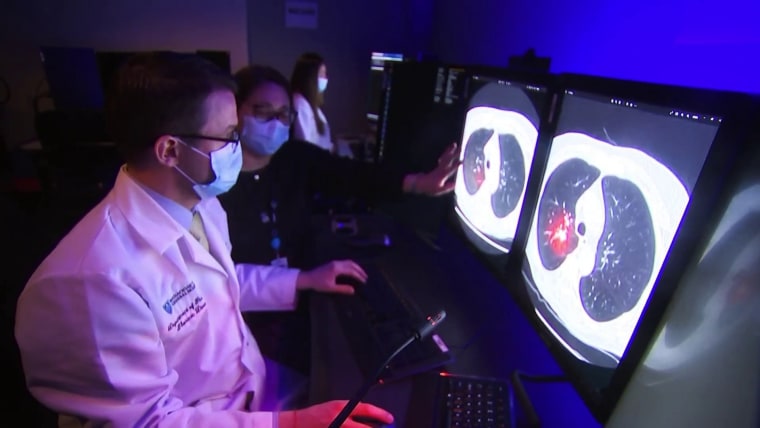
AI Revolutionizes Cancer Detection with Groundbreaking DiscoveriesAI Revolutionizes Cancer Detection with Groundbreaking Discoveries Artificial Intelligence (AI) has emerged as a transformative force in healthcare, revolutionizing the detection and diagnosis of cancer. Deep Learning for Early Identification: AI-powered algorithms utilizing deep learning techniques have demonstrated exceptional accuracy in detecting early-stage cancers. By analyzing vast amounts of medical images, AI models can identify subtle patterns and abnormalities that may go unnoticed by the human eye. This early detection improves treatment outcomes and increases the likelihood of survival. Biomarker Detection for Personalized Medicine: AI algorithms have unlocked the potential to identify biomarkers that are indicative of specific cancer types. By analyzing genomic data and clinical information, AI can personalize treatment plans for each patient, tailoring therapies to their unique molecular profiles. This precision approach enhances efficacy and minimizes side effects. Virtual Biopsies for Non-Invasive Diagnosis: AI-powered virtual biopsies leverage advanced imaging techniques to create virtual representations of tissue samples. This non-invasive approach enables clinicians to obtain high-resolution images without the need for invasive procedures, reducing patient discomfort and improving diagnostic speed. Real-Time Monitoring for Recurrence: AI algorithms can continuously monitor cancer patients after treatment to detect recurrences at the earliest stage possible. By analyzing medical data and wearable device readings, AI can alert clinicians to any suspicious changes, enabling prompt intervention and minimizing the risk of relapse. Enhanced Precision in Diagnosis: AI algorithms have shown promise in improving the precision of cancer diagnosis by providing objective and reproducible interpretations of medical images. Automated image segmentation and classification techniques reduce human error and ensure consistent results, leading to more accurate and timely diagnoses. Unlocking New Frontiers in Cancer Research: AI is also fueling the discovery of novel targets for cancer therapies. By analyzing vast libraries of compounds and patient data, AI algorithms can identify potential drug candidates that may disrupt cancer cell growth or induce apoptosis. Conclusion: The integration of AI into cancer detection has revolutionized the field. From early identification to personalized treatment planning, AI algorithms are empowering clinicians to provide more accurate, timely, and effective care. As AI continues to advance, we can expect even greater breakthroughs in the fight against cancer, improving the lives of countless patients around the world.
Posted inNews